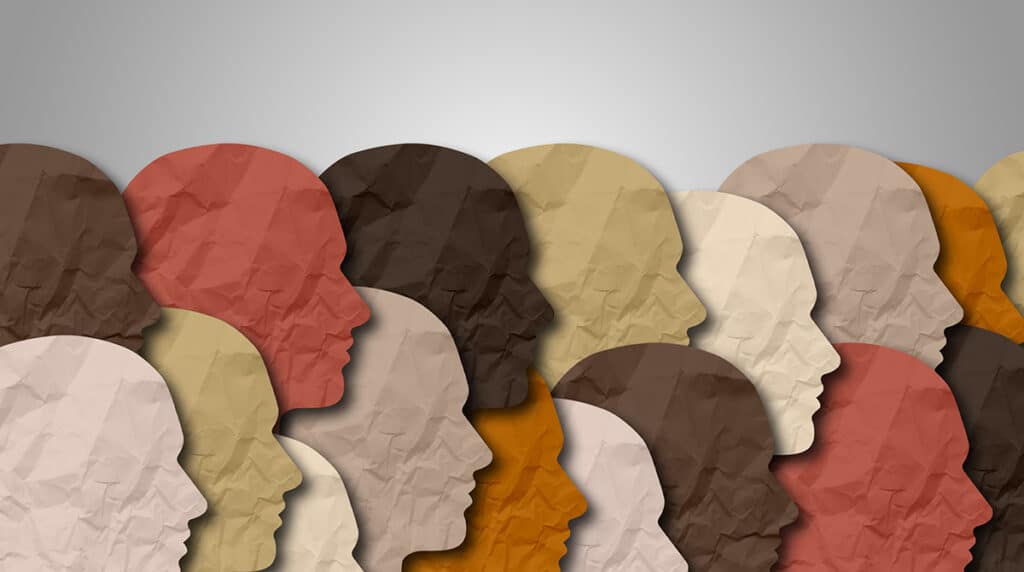Welcome to our Deep Spanish practice series, a Spanish practice that engages students to read something more enticing than every day Spanish words. The purpose of this blog is to read and write in Spanish so that students taking Spanish classes can practice reading something other than ‘where is the library’ or ‘I like the blue pants’.
It is not our intention to promote any political party or ideas related to a political viewpoint. If there is any overlap, it’s because these ideas, like most ideas, can inspire agreement or disagreement.
We are open to comments; however, any rude or inappropriate comments will not be approved. You are welcome to comment and express your agreement or disagreement as long as it’s in Spanish and done in a respectful manner. We encourage you to participate in our Spanish practice series!
Diferencias culturales
He estado pensando en esto durante mucho tiempo y trato de mencionarlo cada vez que puedo para aprender de otras personas y escuchar sus perspectivas.
Quiero hablar sobre las diferencias culturales y por qué es tan importante tener conversaciones abiertas sobre ellas. A menudo, la gente parece incómoda con el tema, como si la palabra diferente fuera algo malo y debiera evitarse. Pero no estoy de acuerdo. Estoy 100% convencida de que sí somos diferentes. Y oye, diferente no significa mejor ni peor, solo significa diferente.

Sé que soy diferente, y también sé que no soy la misma persona que llegó a EE.UU. hace 15 años. Ahora soy una ciudadana híbrida.
Ojalá esto se enseñara en las escuelas, para que cuando los niños escuchen a sus padres decir algo ignorante sobre los extranjeros, los inmigrantes o, en realidad, cualquier persona, aprendan a pensar por sí mismos. No deberíamos ser educados para ignorar las diferencias; deberíamos aprender que está bien reconocerlas. Está bien preguntar sobre la cultura de alguien más. De hecho, es divertido comparar cómo se hacen las cosas en un lugar y cómo se hacen en otro.
Recuerdo cuando recién llegué aquí y una cajera me preguntó si tenía planes para el fin de semana. Me quedé en shock. No podía entender, por más que lo intentara, qué era lo que en realidad quería saber de mí. En Argentina, especialmente en Buenos Aires, si alguien te pregunta qué vas a hacer en una fecha específica, lo primero que piensas es en cancelar tus planes y quedarte en casa, convencido de que están planeando entrar a robarte.
Estos son solo pequeños ejemplos de lo diferentes que pueden ser nuestras percepciones y expectativas según de dónde venimos. Pero hay mucho más.
Así que seamos conscientes de esto cuando interactuemos con los demás. Todos somos diferentes, y cuando venimos de distintas partes del mundo, las diferencias son aún mayores. Y sé que algunos pueden estar pensando: Bueno, entonces quédate en tu país. Pero en realidad, ¡hay tanto que podemos aprender los unos de los otros! Y seamos sinceros: si nosotros estamos aquí, muchas veces es porque estamos haciendo algo que los locales no quieren hacer o no pueden hacer.

Recuerden, hablar sobre diferencias culturales no es una falta de respeto. Preguntar para entender mejor a alguien no es una falta de respeto. Pero rechazar o despreciar a alguien que ni siquiera conoces… eso sí es una falta de respeto e ignorancia.
Más sobre diferencias culturales pronto, lo prometo.
Cultural Differences
I’ve been thinking about cultural differences for a while and try to bring it up whenever I can so I can learn from others and hear their perspectives about.
I want to talk about cultural differences and why it’s so important to have open conversations about them. People often seem uncomfortable with the topic—almost as if the word different is wrong or negative and should be avoided. But I disagree. I am 100% convinced that we are different. And hey, different doesn’t mean better or worse—it just means different.
I know I’m different, and I also know that I’m not the same person who moved to the U.S. 15 years ago. I’ve become a hybrid citizen.
I wish this was taught in schools so that when kids hear their parents say something ignorant about foreigners, immigrants, or really anyone, they learn to think for themselves. We shouldn’t be taught to ignore differences—we should be taught that it’s okay to acknowledge them. It’s okay to ask about someone else’s culture. It’s actually fun to compare the way things are done in one place versus another.
I remember when I first moved here, and a cashier asked me if I had plans for the weekend. I was shocked. I couldn’t, for the life of me, figure out what she was really trying to find out about me. In Argentina—especially in Buenos Aires—if someone randomly asks what you’re doing on a specific date, you’d be ready to cancel your plans and stay home, convinced they’re planning to break into your house!
These are just small examples of how different our perceptions and expectations can be based on where we come from. But there’s so much more.
So, let’s be mindful of that when we interact with others. We’re all different—even more so when we come from different parts of the world. And I know some people might be thinking, Well then, stay where you belong. But actually, there’s so much to learn from each other! And let’s be honest—if we are here, it’s often because we’re doing something that locals either don’t want to do or can’t do.
Remember, talking about cultural differences isn’t rude. Asking questions to understand someone better isn’t rude. But disliking someone you’ve never even met? That is both rude and ignorant.
More on cultural differences soon—I promise.


Responses